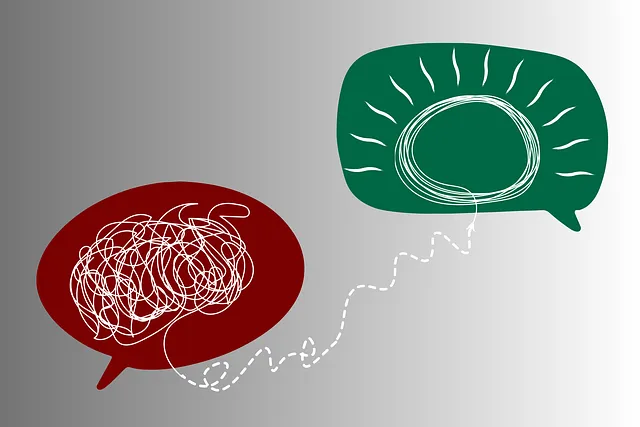Golden Kaiser Permanente's innovative approach to behavioral health services emphasizes resilience building through the RFM framework (Resilience, Flexibility, Mastery). This structured program tackles stress root causes by improving mood management, self-esteem, and coping strategies. By integrating evidence-based practices like mindfulness, cognitive reframing, and community engagement, individuals gain inherent resilience for effective stress management. Organizations can implement this strategy through needs assessments, tailored exercise plans, and regular progress reviews to foster emotional intelligence and mental wellness among employees. Success is measured using both quantitative (anxiety/depression scores) and qualitative (patient/provider feedback) evaluation methods.
“Resilience is a cornerstone of mental well-being, especially within behavioral health services. This article explores the powerful combination of RFM (Risk, Frequency, and Motivation) and resilience-building exercises, offering a practical guide for professionals aiming to enhance client outcomes.
We’ll delve into the significance of RFM in understanding client behavior, particularly within Golden Kaiser Permanente’s acclaimed behavioral health services model. By implementing effective resilience exercises, as outlined in our step-by-step guide, practitioners can empower individuals to navigate challenges more adaptively. Additionally, we’ll discuss measurement strategies to evaluate the impact on these transformative behavioral health services.”
- Understanding RFM and Its Significance in Behavioral Health
- The Golden Kaiser Permanente Approach to Resilience Building
- Implementing Effective Resilience Exercises: A Step-by-Step Guide
- Measuring Success: Evaluating the Impact of RFM on Behavioral Health Services
Understanding RFM and Its Significance in Behavioral Health

Resilience is a cornerstone of behavioral health, enabling individuals to overcome challenges and navigate life’s ups and downs with strength and adaptability. This is where RFM (Resilience, Flexibility, and Mastery) comes into play, offering a structured framework for enhancing these crucial aspects. Developed by the Golden Kaiser Permanente behavioral health services, RFM targets the root causes of stress and adversity, focusing on building skills to manage mood, improve self-esteem, and cope with stressful situations effectively.
By integrating RFM exercises into therapeutic practices, professionals can empower individuals to foster resilience, a key predictor of positive mental health outcomes. These exercises encourage personal growth by teaching practical strategies for stress management, promoting emotional regulation, and cultivating a sense of control over one’s life. This proactive approach not only enhances overall well-being but also equips individuals with valuable tools to navigate the complexities of modern life, ensuring better mental health and improved quality of life.
The Golden Kaiser Permanente Approach to Resilience Building

The Golden Kaiser Permanente Approach to Resilience Building emphasizes a holistic strategy that integrates behavioral health services into daily life. This method goes beyond mere coping mechanisms; it focuses on empowering individuals to cultivate inherent resilience through evidence-based practices. By combining advanced Stress Reduction Methods with tailored Self-Care Practices, this approach ensures that every individual can navigate life’s challenges with greater ease.
The core of the Golden Kaiser Permanente strategy lies in Emotional Well-being Promotion Techniques designed to strengthen mental and emotional defenses. Through a combination of mindfulness exercises, cognitive reframing, and supportive community engagement, individuals are equipped to manage stress effectively and build lasting resilience. This proactive approach not only enhances overall well-being but also fosters a profound sense of empowerment, enabling folks to embrace change and thrive under pressure.
Implementing Effective Resilience Exercises: A Step-by-Step Guide

Implementing effective resilience exercises is a powerful way to enhance emotional intelligence and mental wellness, as highlighted by Golden Kaiser Permanente behavioral health services. To begin, organizations should start with a needs assessment to identify specific areas where employees may require support. This could involve gathering feedback through surveys or focus groups to understand stress triggers, coping mechanisms, and desired improvements in self-care practices.
Once identified, develop a structured plan that aligns exercises with individual and collective goals. Start small with simple activities like mindfulness meditation, deep breathing exercises, or short walks during lunch breaks. Gradually introduce more complex techniques such as cognitive behavioral therapy (CBT) strategies, stress management workshops, or group discussions on building supportive social networks. Regularly review progress, encouraging open communication and feedback to ensure exercises remain relevant and effective in promoting resilience among employees.
Measuring Success: Evaluating the Impact of RFM on Behavioral Health Services

Measuring Success: Evaluating the Impact of RFM on Behavioral Health Services
The effectiveness of Resilience-Focused Mindfulness (RFM) exercises in enhancing behavioral health services at Golden Kaiser Permanente cannot be accurately assessed without robust evaluation methods. By integrating self-care practices and cultivating cultural sensitivity in mental healthcare, RFM aims to improve patient outcomes related to stress management and overall well-being. To gauge its success, a multi-faceted approach is required. This includes quantitative assessments, such as tracking changes in patient anxiety and depression scores over time, alongside qualitative feedback from both patients and providers.
Regular monitoring of participant experiences through surveys and interviews provides valuable insights into the perceived benefits of RFM. These evaluations should explore how the exercises influence stress levels, emotional regulation, and overall resilience among individuals engaging with Golden Kaiser Permanente’s behavioral health services. By combining these evaluation methods, the impact of RFM can be holistically understood, guiding future improvements and ensuring that self-care practices are tailored to meet the diverse needs of patients within this healthcare setting.
The implementation of RFM and resilience-building exercises offers a transformative approach for enhancing Golden Kaiser Permanente’s behavioral health services. By understanding individual needs, as highlighted in the article’s sections, healthcare providers can create tailored programs that foster resilience. The step-by-step guide ensures effective delivery, while measuring success allows for continuous improvement. This comprehensive strategy not only strengthens patient outcomes but also positions Golden Kaiser Permanente as a leader in innovative behavioral health care, ultimately enriching the lives of those seeking support.






